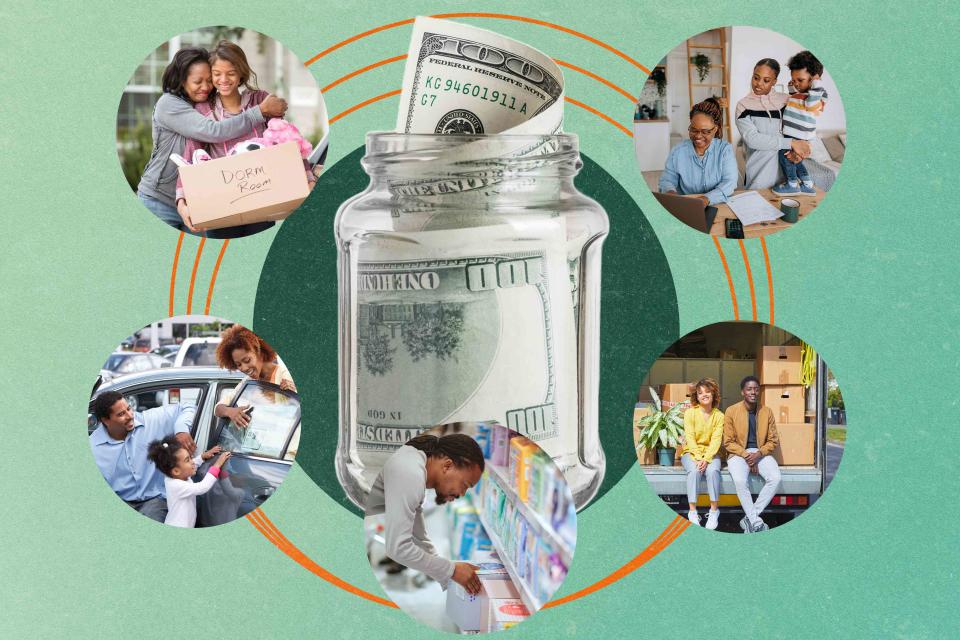Black Wealth Is Black Power
From harnessing the wealth-building power of community savings clubs to understanding financial trauma, financial literacy for Black families is about so much more than making money.

Jasmine Purdie for Kindred by Parents/Getty Images (6)
Some of my childhood memories of money, in no particular order: receiving a dollar every time my father came home from work and saving so many of them that they covered our entire living room floor, getting into the most trouble for taking money out of my credit union savings account to buy Jordans and Prada sneakers in high school, being instructed to keep “mad money” in my wallet for bad dates.
To say I had a sticky, gooey relationship with money would be an understatement. I could earn it quickly, but I could spend it even faster. I was great at budgeting, but not until I was almost broke. I didn’t really believe in money in the first place—all of the things I bought with it should've been free. (Well, maybe not Jordans—but everything else.)
It was only once I got older that I realized the value of money beyond the things that I wanted, and how much it is inextricably tethered to the power that Black people have and deserve in this country
For so many of us, teaching our children about money means teaching them how to earn it. For me, learning about money meant understanding the social capital I could exchange it for.
As a freelancer and an adjunct with a new baby, money meant we could move to a bigger apartment in a neighborhood with more public green space. In the middle of the pandemic, it meant becoming a homeowner and finally feeling safe. As a parent, it means buying my child an education so that she’ll be able to navigate the world knowledgeably, but also so that she can always get a job. Money is as small as a safe taxi ride home and as big as the power to fight discrimination in court.
Ideally, we’d live in a society that provided essential resources like a basic income, housing and food, healthcare, and higher education. If we lived in a better country we might even receive reparations. But we don’t—at least not yet. These are things we’ve had to create for ourselves, so having the money to invest in them is a start.
Celeste Little
Senior Editor
For more Parents news, make sure to sign up for our newsletter!
Read the original article on Parents.

